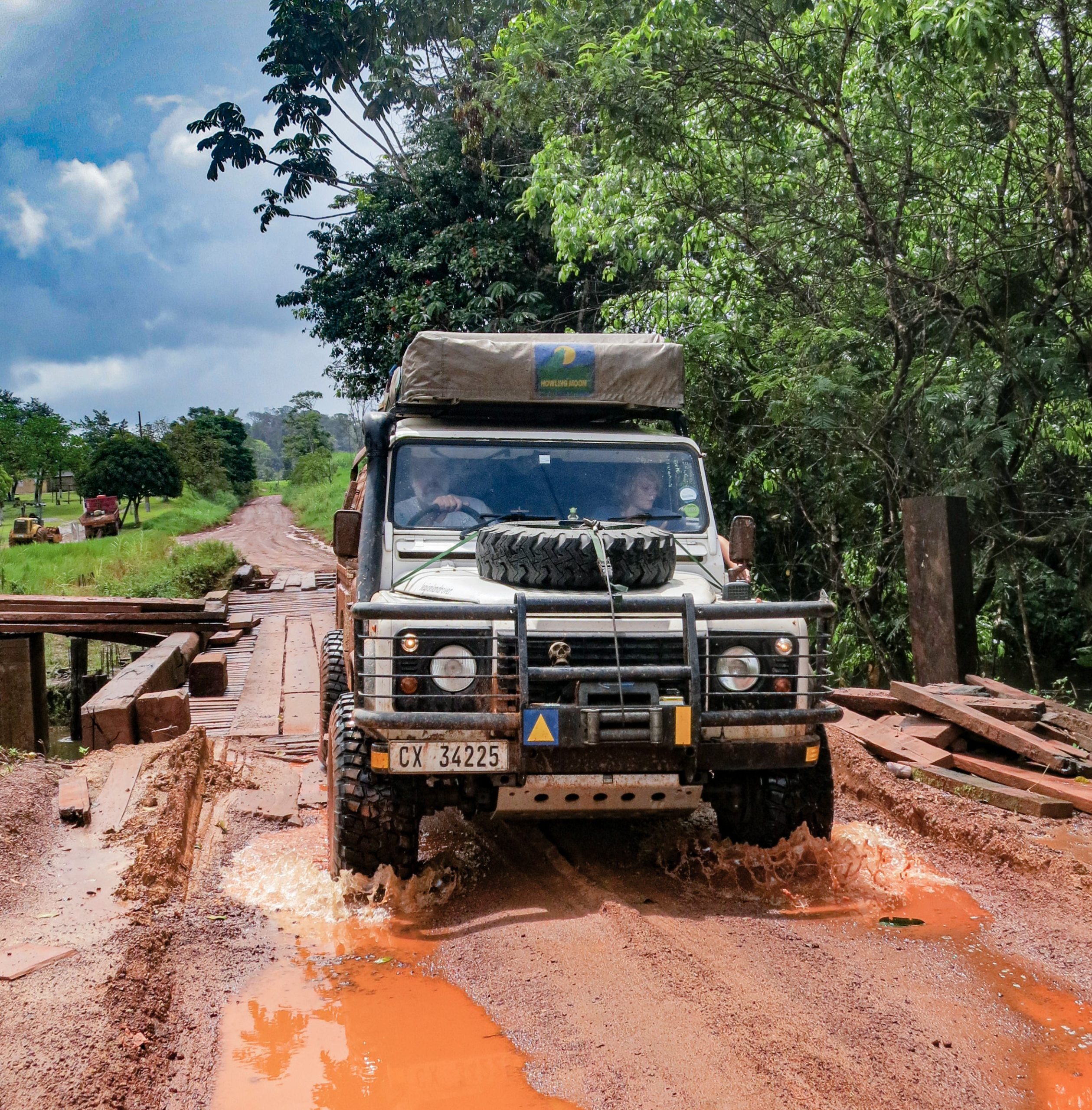The jungle has evolved with one purpose alone—consumption and renewal. Of all the terrain on earth, it is the tropical jungle that is most determined to devour you as it devours every living thing in the pursuit of its survival and prosperity. It helps to think of the jungle as an enormous, beautiful predator, an ecosystem that feeds on the unlucky, unprepared, and weak. It’s an environment where even the mightiest eventually return to the soil, often prematurely.
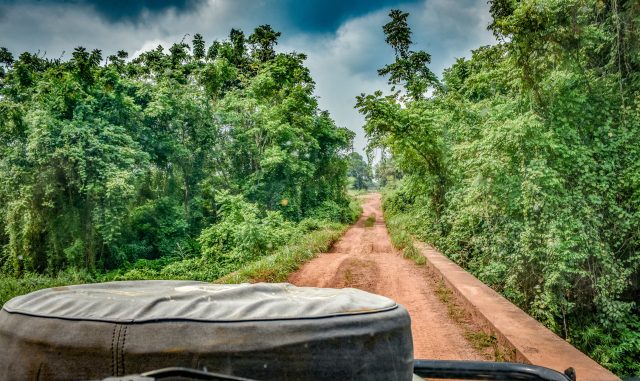
An explorer must practice extreme caution when traveling this terrain. A scratch on any exposed flesh will rapidly become host to a myriad of flesh-eating, stubborn, and nearly indestructible bacteria. Insects and serpents are armored for mortal combat, flitting green butterflies feed on the flesh of the fallen, and life-draining plants suffocate life-giving plants. We soon became accustomed to spiders the size of a large man’s hand. In our sojourns to the jungle, we learned our lessons the hard way. I shudder to remember when a flesh-eating gnat took up residence in my back after an expedition across the Amazon, or the illness and malaria that plagued our family of four as we traveled through the jungles of West Africa, and when severe illness and septic flesh tormented me on a journey across Mozambique.
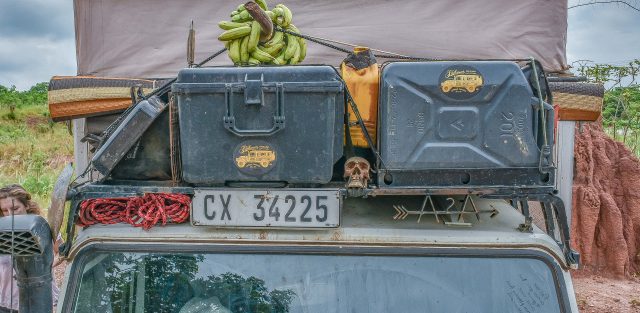
If you need to ask why do we then travel to such places, you may never understand why. We have marveled at and enjoyed blue pools of cool, fresh water, eaten the sweetest fruit plucked directly from a tree, and been entertained by exotic birds and reptiles. We have set eyes on the deepest, most luxurious shades of green, been astonished by the intricate beauty of otherworldly flora and fauna, and enjoyed the hospitality of people far removed from the comfort and triviality of the modern world. We have slept in our rooftop tent upon a 72-hour-long ferry, navigating the Amazon river and its tributaries. Rest assured, you will never feel as alive as you do when you find the rhythm of the mighty jungle, which is simultaneously the Garden of Eden and the Land of Nod. The jungle is well worth exploring, but you do need to be prepared.
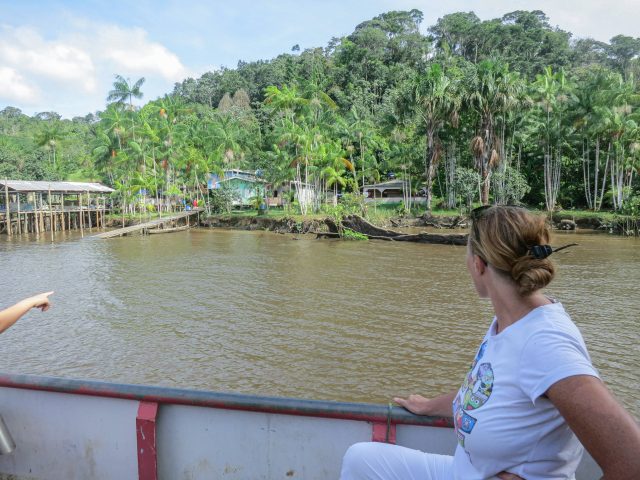
Vehicle
As an overlander, you will likely be traveling to and from the tropics in your overland-ready vehicle. It is essential to prepare it for the climate and the terrain; this is the one environment where you will need all the suitable tools. Naturally, the vehicle will be equipped for sleeping and cooking, impeccably maintained, and serviced with specific attention paid to the cooling system, accessories, and auxiliary equipment. If you make your way solo (as we do), a winch is indispensable (whether it is used or not is secondary to peace of mind), as is a good set of mud-terrain tires—you will find that deep mud is synonymous with a cloying jungle. An axe, machete, and saw are imperative in the jungle, as is a solid spade or shovel, and perhaps even a hoe if you are traveling in the wet season. It makes no real difference whether you use a diesel or gasoline vehicle so long as you carry sufficient fuel with surplus fuel in reserve.

Few roads penetrate the most remote jungles, and the ones that do tend to be relatively well-traveled. In the event of a breakdown or becoming bogged in mud, it is often only a matter of time before someone will come along and offer aid. There is a code of ethics in the jungle; you should greet other travelers as they pass and stop to assist the stranded (unless someone else already has). A gift for helpers is good manners and could be a cold beer or bottle of water, food, or some cash.
Clothing
In the jungle environment, your clothing is a soft exoskeleton that should protect you from the sun on those open stretches of road (the jungle is otherwise a dark, shadowy place) and from the insects that feed night and day. Garments, such as the Craghoppers Nosilife range, which we favor, should ideally be treated with permethrin, a chemical that has been declared safe for humans but kills or repulses bugs such as mosquitoes, flies, gnats, and ants. Ideally, long sleeves and trousers should be worn at night and even during the day if you can handle the heat. Clothing should be dirt-resistant, breathable, and quick-drying.
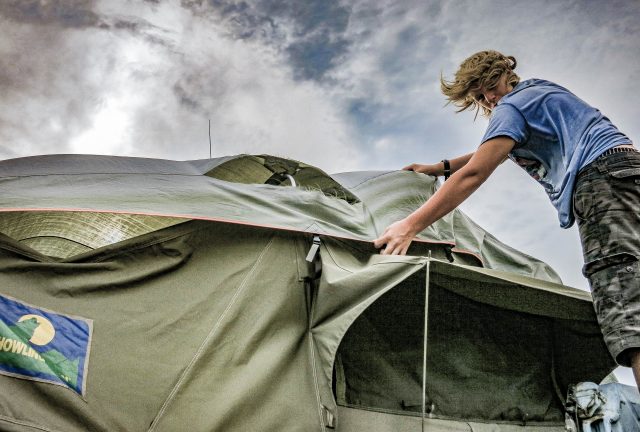
A stout pair of boots or shoes should be worn at all times when not in the comfort of your bed (this is easier said than done). While it may be tempting to drive wearing a pair of flip-flops or Crocs (unfortunately for the fashion police, Crocs are excellent for overland travel), avoiding injury to your feet is paramount, as a foot wounded while pushing a rig out of mud will soon become infected with potentially calamitous results. Be sure to stuff unused shoes with socks and ensure that all footwear is stored safely and off the ground. A set of rubber boots and a raincoat are wet-season essentials. Finally, an effective bug repellent applied to all exposed skin is absolutely necessary to defend your body from the constant onslaught of biting, burrowing, and disease-carrying insects. You will quickly discover that this is your number one priority.
First Aid Kit
Prevention is better than a cure. Malaria is a serious concern in the tropics, particularly in Africa. Your first aid kit must include an anti-malarial treatment, such as Coartem, and a few malaria self-tests. Testing for and treating malaria without delay could save your life. It is advisable to purchase both the test and the treatment upon arrival in the tropics, where you should find both readily available and affordable—a little research can go a long way. That said, your well-stocked and prepared first aid kit should also include buckets of effective anti-bacterial cream, such as Fucidin, salves for treating insect stings and bites, and a broad selection of Band-aids and bandages.
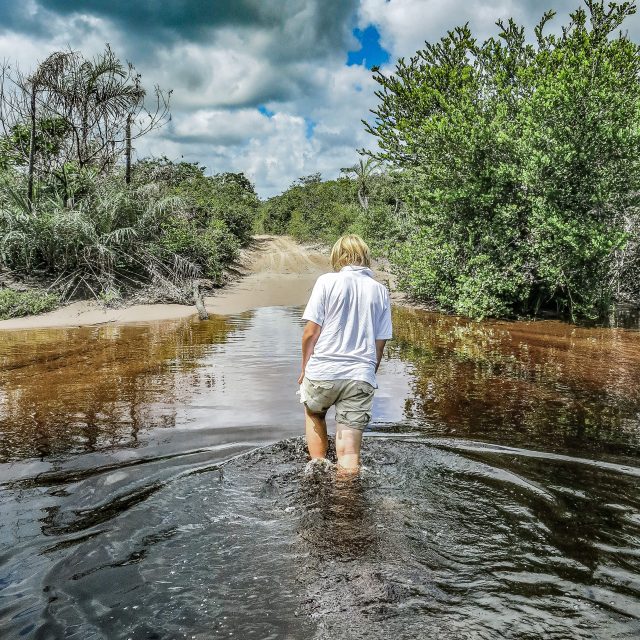
This environment is the ideal home for the proliferation of bacteria, and a swim in a cenote or snorkel in the sea may result in the need for the treatment of an ear and eye infection which can quickly spread to the sinuses and jaw. My wife and I tend to suffer recurring ear and eye infections when we explore the tropics. It is almost guaranteed that you will develop a case of the trots, so do not even think about entering the jungle without anti-diarrhea medication and a few sachets of hydration formula.
Camping
You will be hot, there will hardly ever be a breeze, and there will be a constant assault by armies of bugs. Any seasoned jungle traveler knows that the hammock is the bed of choice for jungle dwellers as you are elevated from the ground—the best place to be if you do not have a vehicle equipped with a rooftop tent or camper. With regular tropical downpours, and a floor squirming with fangs, claws, and proboscis, a ground tent is not ideal; you want to be high and dry. Occasionally, an explorer will find rest areas offering covered quarters built with a central pole from which a flower of hammocks may spread. Never use a (sweat-drenched) communal hammock as they are seldom washed, and cover your hammock with a mosquito net. When sleeping in a rooftop tent or camper, the area must be sealed from the ingress of bugs, and, if possible, a small fan can be deployed to offer relief from the stifling, still heat. A wet shemagh or T-shirt draped across your body may help, but it must be washed well after every night of use as the wet fabric mixed with sweat encourages the growth of bacteria.
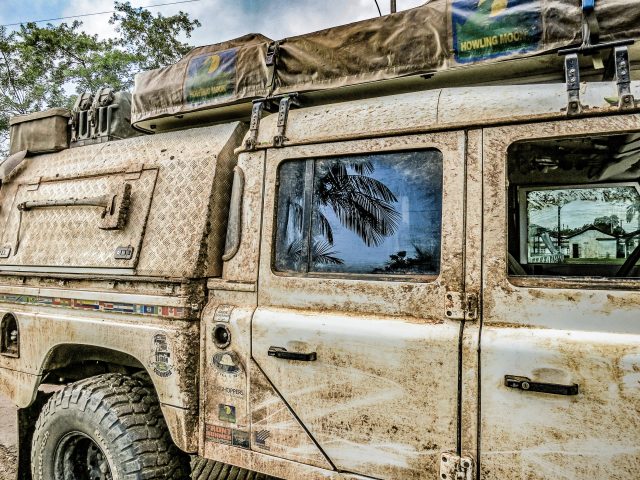
Never camp with the vehicle touching the hanging branches of a tree, as it will take less than a hot and humid minute for a patrolling ant to realize you have inadvertently provided a bridge to your home. Within hours your vehicle will be swarming with ants, some of which have painful stings and bites. When camped under a tree, you can expect to be carpet bombed with the dog-sized excrement of cayman-sized iguanas. Making a campfire will be difficult in the jungle as most wood is wet. Be sure to wear gloves and practice extreme caution when scavenging for firewood. When you have sourced relatively dry wood, you can start a fire by making a small bowl out of newsprint or similar paper into which you should pour a few tablespoons of cooking oil. Light the edges and wait for the oil to ignite before stacking the wood intelligently around the fire bowl. Expect much smoke from wet wood.
Sustenance
You will not struggle to find water. You will, however, struggle to find drinking water and will likely not be able to carry enough for a few weeks in the jungle far from civilization. Staying hydrated in the jungle is as important as staying hydrated in the desert, as you will be sweating from dawn till dawn. A reliable water filter, used correctly, will be sufficient to ensure that you are able to stay hydrated and occasionally washed. We used a LifeSaver jerrycan across West Africa which was capable of filtering large quantities of water very slowly. Although it did suffer a few failures, we were able to repair them in the field. Be sure to carry spares for your water filtration system and filter only the clearest water you can find.
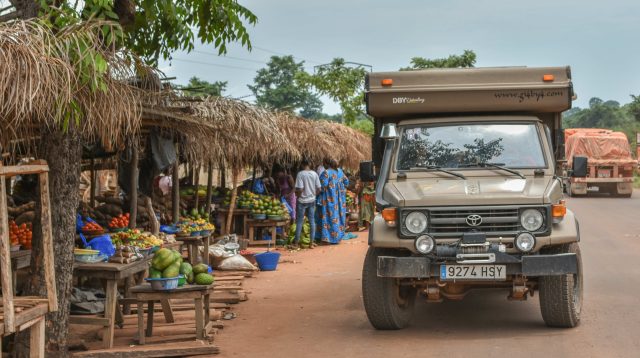
Jungle dwellers survive mostly on local agriculture, bulk-bought stores of basics such as rice and beans, fishing, and even hunted bushmeat (please note that it is not best practice for overlanders to eat bushmeat). You will likely be unable to source much fresh food while traveling other than a plethora of excellent fruit and muddy fish. Canned and dehydrated food should be carried in twice the initially calculated quantity as you never know what might happen during your adventure, which might prolong your journey. Sharing food with other travelers is also the very best flavor of karma.
Communication
A Garmin inReach, or Spot X satellite communication device may be a lifesaver should an emergency strike while you are far from the grid. While not inexpensive, these satellite devices are now a greater value proposition as coverage has increased significantly over the years, and total or near-total-global coverage is on offer (the Garmin unit appears to offer the most comprehensive coverage). Bear in mind that deep in the jungles of this planet, you will be far from rescue and modern medical services; caution must be practiced as second nature and risks are mitigated. Large settlements on the verge of more remote areas may offer sluggish data connections or cramped internet cafes but will provide an opportunity to connect with your nearest and dearest to let them know you are fine and heading back in.
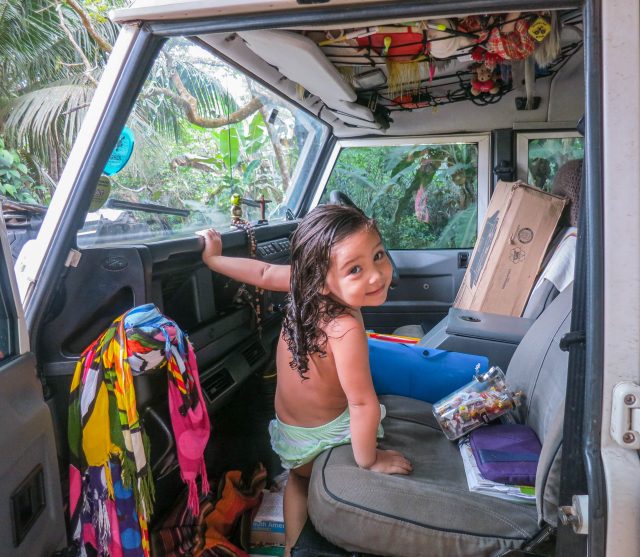
With preparation and patience, your journey to the tropics can be comfortable and highly rewarding. The jungle is another world that deserves respect and conservation.
Our No Compromise Clause: We carefully screen all contributors to ensure they are independent and impartial. We never have and never will accept advertorials, and we do not allow advertising to influence our product or destination reviews.


